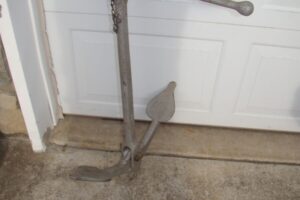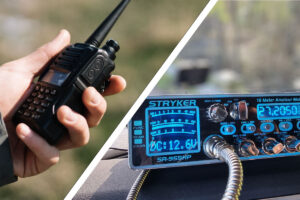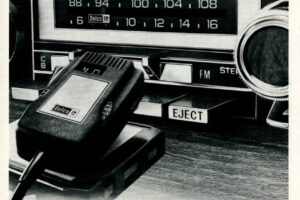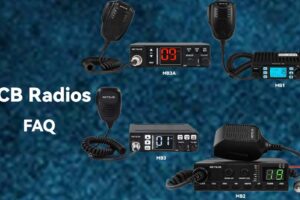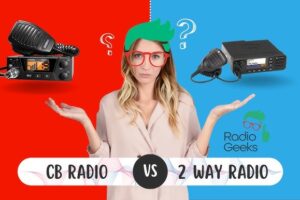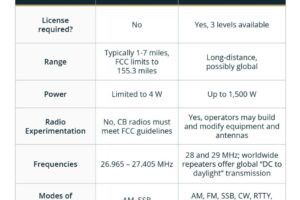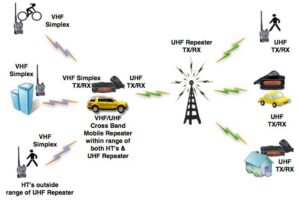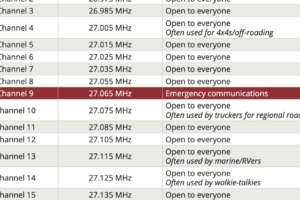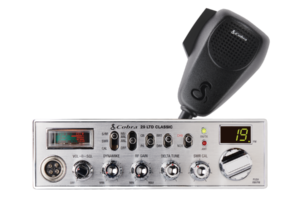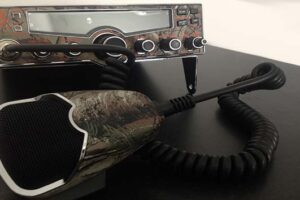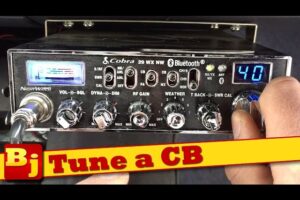Boat CB Radio: Essential Guide for Seamless Communication
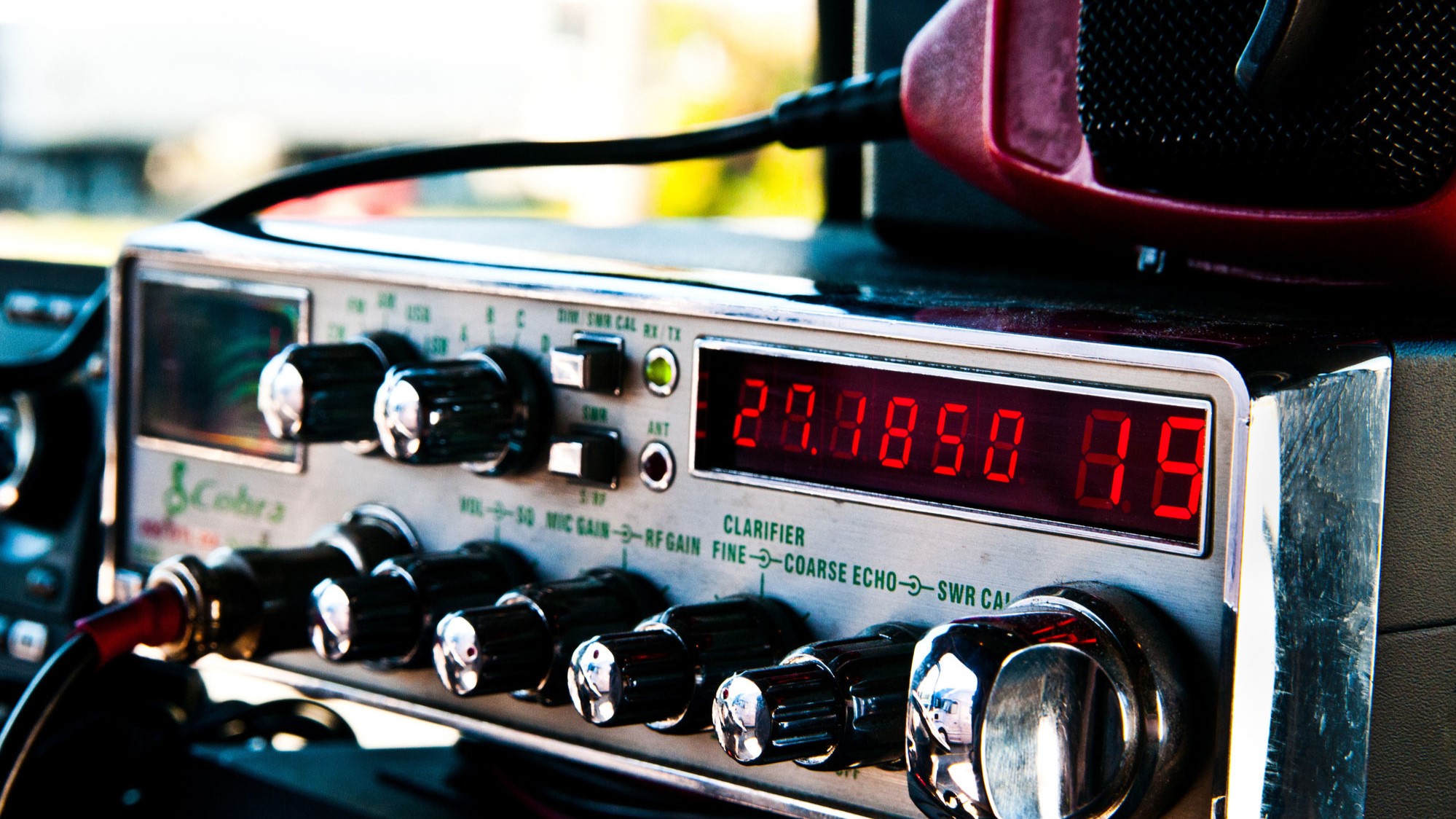
CB radios are essential for boat communication. They ensure safety and connectivity at sea.
For boaters, a reliable CB radio can be a game-changer. These devices help you stay in touch with other boats, marinas, and emergency services. Whether you are an avid sailor or a weekend fisherman, knowing you can call for help anytime is priceless.
CB radios are not just for emergencies; they also provide weather updates and navigational assistance. In this blog post, we will explore everything you need to know about boat CB radios. From their benefits to choosing the right one, we’ve got you covered. Stay tuned to learn how a CB radio can enhance your boating experience.

Credit: www.nauticexpo.com
Introduction To Boat Cb Radio
Boat CB radios play a crucial role in ensuring safe and effective communication on the water. They allow boaters to stay connected, share information, and seek help during emergencies. With a CB radio, you can communicate with other boats, marinas, and even the coast guard. This enhances your boating experience and ensures safety. Understanding the basics of boat CB radios helps you appreciate their importance and historical significance.
Importance Of Communication On Water
Communication is vital for safe boating. It helps avoid collisions and navigate through rough weather. Boat CB radios facilitate this by providing a reliable means of communication. They are essential for sending distress signals and receiving important updates. Staying informed about weather conditions and navigating hazards becomes easier. Clear communication on the water keeps everyone safe and informed.
Brief History Of Cb Radios
CB radios, or Citizens Band radios, have a rich history. They were first introduced in the 1940s for public use. Initially, they were popular among truck drivers for road communication. Over time, their use spread to various sectors, including boating. Boat CB radios became indispensable for mariners. They offered a reliable method to communicate over short distances. The evolution of CB radios has made them a staple in modern boating for safety and convenience.
Key Features Of Boat Cb Radios
Boat CB radios are essential for communication on the water. They offer reliable contact with other boats and emergency services. Knowing their key features helps in choosing the right one. Below are some crucial aspects to consider.
Range And Frequency
The range of a boat CB radio is vital. It determines how far you can communicate. Most boat CB radios have a range of 3 to 20 miles. The range depends on the power output and antenna height. Higher power and better antennas increase the range.
Frequency is another key feature. Boat CB radios operate on 40 channels in the 27 MHz band. This frequency range is ideal for short-distance communication. It ensures clear and reliable signals. Choosing the right frequency helps in avoiding interference.
Weather Channels
Weather channels are crucial for safety. Boat CB radios often come with NOAA weather channels. These channels provide real-time weather updates. They help you stay informed about changing conditions.
Weather alerts can warn you of storms and other hazards. Having access to weather channels ensures a safer boating experience. Make sure your boat CB radio has this feature.
Choosing The Right Cb Radio
Choosing the right boat CB radio ensures clear communication on the water. Look for durable, waterproof models with strong signal range. Reliable CB radios enhance safety and coordination during boating trips.
Choosing the right CB radio for your boat can seem like a daunting task, but it doesn’t have to be. Whether you’re an avid sailor or a weekend boater, having a reliable CB radio on board is essential for safety and communication. This guide will help you navigate the key factors to consider and recommend some top brands to make your decision easier.Factors To Consider
When selecting a CB radio for your boat, several factors come into play. Durability is crucial. Your CB radio must withstand the harsh marine environment. Look for water-resistant or waterproof models. Range and Power are also important. A radio with a higher wattage will give you better range and clearer communication. Check the specifications to ensure it meets your needs. Ease of Use can make or break your experience. Opt for a radio with intuitive controls and a clear display. This is especially important when you need to operate it in emergencies. Consider the Size and Mounting Options. You need a unit that fits your boat’s layout without being intrusive. Some models offer flexible mounting options to suit different spaces. Finally, think about Extra Features. Some CB radios come with weather alerts, GPS integration, and Bluetooth connectivity. While not essential, these can enhance your boating experience.Top Brands
Several brands stand out in the marine CB radio market, each offering something unique. Cobra is known for its reliable and durable radios. Their models often include features like NOAA weather channels and emergency alerts. They are a popular choice among boaters. Uniden offers a range of CB radios with excellent performance and durability. Their products are user-friendly and often come with additional features like noise-canceling microphones. Midland is another trusted brand. They offer versatile models that are perfect for both beginners and experienced boaters. Their radios are known for long-range communication and robust build quality. Galaxy is also worth mentioning. They provide high-power CB radios with advanced features. These are ideal for those who need strong performance and are willing to invest a bit more. Choosing the right CB radio doesn’t have to be overwhelming. By focusing on these factors and considering reputable brands, you can find a radio that suits your needs and keeps you safe on the water. What features are most important to you in a CB radio? Have you had any experiences with these brands? Share your thoughts in the comments!Installation Tips
Installing a CB radio on your boat can improve communication. It helps in emergencies and keeps you connected. Proper installation is key for optimal performance. Here are some tips to help you get started.
Mounting Location
Choose a location that is easy to reach. The radio should be close to the steering wheel. Ensure it does not block your view. Avoid placing it near other electronic devices. This prevents interference.
Make sure the area is dry and protected. Water can damage the radio. Secure the radio with a strong mount. It should stay in place even in rough waters.
Antenna Setup
The antenna is crucial for good signal reception. Place it as high as possible. This increases the range. Ensure it is away from metal objects. Metal can block the signal.
Use a sturdy mount for the antenna. It must withstand strong winds and waves. Connect the antenna to the radio with a good quality cable. Check all connections for tightness. Loose connections can cause poor performance.
Operating Your Cb Radio
Operating a CB radio on a boat requires setting the right frequency. Clear communication ensures safety and coordination with other vessels. Regular checks on battery and antenna improve performance.
Operating Your CB Radio Operating a CB radio can be an enjoyable and practical skill, especially if you spend a lot of time on the road or out at sea. Whether you’re new to CB radios or looking to brush up on your skills, mastering the basics can enhance your communication experience. Let’s dive into the essentials of operating your CB radio effectively.Basic Controls
Getting familiar with the basic controls of your CB radio is crucial. Start by identifying the key components such as the power switch, microphone, volume knob, and channel selector. When you turn on the radio, adjust the volume to a comfortable level. Use the channel selector to find the right channel for your communication needs. Channel 19 is often used by truckers, while Channel 9 is reserved for emergencies. Don’t forget the squelch control. This helps to eliminate background noise when no one is transmitting. Rotate the squelch knob until you hear a clear signal.Understanding Cb Lingo
CB lingo is a unique language that can make your communication more efficient and fun. Learning common terms and phrases can help you fit right in. For instance, “10-4” means “message received,” while “breaker” is used to request a conversation. Knowing these terms can make your interactions smoother. Use a handle, or nickname, to identify yourself. This adds a personal touch and helps others remember you. If someone says “What’s your 20?” they’re asking for your location. Engage with other CB users by practicing these phrases. It can make your communication clearer and build camaraderie among fellow operators. Now that you know the basics and lingo, why not try using your CB radio next time you’re on the road or out on the water? It could open up new channels of communication and make your journey more enjoyable.
Credit: www.amazon.com
Troubleshooting Common Issues
Boat CB radios are essential for communication on the water, but like any technology, they can experience issues. Understanding how to troubleshoot common problems can save you time and frustration. Let’s dive into some typical issues and how you can resolve them.
Signal Interference
Signal interference can be a big headache. It often happens when other electronic devices are nearby. If you’re experiencing signal interference, try these steps:
- Move your CB radio away from other electronic equipment.
- Check the antenna connections and ensure they are secure.
- Switch to a different channel to see if the interference persists.
One time, I had my CB radio right next to a GPS unit. The interference was unbearable. Moving the radio just a few feet away solved the problem instantly. Have you checked if your electronics are too close together?
Audio Problems
Audio problems can range from static to complete silence. Troubleshooting these issues can help restore clear communication. Consider these tips:
- Ensure the volume is turned up and not muted.
- Inspect the microphone for any damage or loose connections.
- Test with another microphone if possible to rule out a faulty mic.
Once, I thought my radio was broken because I couldn’t hear anything. It turned out the volume knob was turned all the way down. Simple checks can sometimes solve big problems. Have you tried adjusting the volume?
By addressing these common issues, you can keep your boat CB radio in top shape and ensure clear communication on the water. What other problems have you encountered with your CB radio?
Maintenance And Care
Maintaining your boat CB radio ensures it works efficiently. Proper care extends its life and reliability. Follow these easy steps to keep your radio in top shape.
Regular Cleaning
Dirt and salt can build up on your CB radio. Clean it regularly to avoid damage. Use a soft, damp cloth to wipe the surface. Avoid harsh chemicals. They may harm the radio’s components. Pay attention to buttons and knobs. They need to move freely.
Periodic Checks
Check your boat CB radio periodically. Ensure all connections are secure. Loose wires can cause signal loss. Test the antenna for any damage. A faulty antenna affects transmission. Listen for any unusual sounds. They might indicate internal issues.
Legal Regulations
Boat CB radios must follow legal regulations to ensure safe and clear communication. These rules help avoid interference with other radio services. Always check local laws before using a CB radio on your boat.
When using a boat CB radio, it’s crucial to understand the legal regulations that govern its use. Ignoring these regulations can result in fines or other penalties. Let’s break down the key aspects of these regulations, focusing on licensing requirements and usage restrictions.Licensing Requirements
Before you start using your boat CB radio, check if you need a license. In some countries, you need a specific license to operate a CB radio on a boat. In the United States, the Federal Communications Commission (FCC) does not require a license for CB radio use. However, some other countries, like Canada, have different rules. It’s always best to check the local regulations to ensure you’re compliant. Do you know someone who got fined for not having the right license? Share your story in the comments to help others avoid the same mistake.Usage Restrictions
Using a boat CB radio comes with specific usage restrictions. You cannot use it for personal gain or business purposes. Certain channels are designated for specific uses. For example, Channel 9 is reserved for emergency communications only. Misusing this channel can lead to penalties. Always keep your communications short and to the point. Long-winded conversations can clog up the channels and prevent others from using them. Have you ever experienced interference on a CB radio? It can be frustrating when you need to communicate important information. Share your tips on how to avoid this issue.Emergencies And Safety
Emergencies on the water can happen anytime. Being prepared is essential. A Boat CB Radio is a valuable tool for safety. It ensures communication during critical moments.
Calling For Help
A Boat CB Radio can save lives during emergencies. You can instantly call for help. Send distress signals to nearby boats. Alert coast guards and rescue teams. Clear communication can speed up assistance. Keep the radio charged and accessible. Practice using it regularly. Know the emergency channels. Have a backup power source.
Safety Protocols
Follow safety protocols when using a Boat CB Radio. Learn the proper procedures. Maintain clear and concise communication. Avoid unnecessary chatter during emergencies. Use standard emergency phrases. Ensure all crew members know how to operate the radio. Conduct regular safety drills. Keep the radio in good condition. Check for damages frequently. Replace faulty equipment immediately.

Credit: www.ebay.com
Frequently Asked Questions
Can You Use A Cb Radio On A Boat?
Yes, you can use a CB radio on a boat. It’s useful for communication and emergencies. Ensure it’s waterproof and complies with local regulations.
Is A Marine Radio The Same As A Cb Radio?
No, a marine radio is not the same as a CB radio. Marine radios are used for communication on water. CB radios are used for land communication.
How Far Will A Handheld Marine Radio Transmit?
A handheld marine radio typically transmits up to 5 miles. Range depends on factors like weather, terrain, and antenna height.
Are 23 Channel Cb Radios Illegal?
Yes, 23 channel CB radios are legal. However, newer models with 40 channels are now standard and preferred.
Conclusion
A boat CB radio is a must-have for safety at sea. It ensures communication during emergencies and helps in navigation. Choosing the right model enhances your boating experience. Check for essential features before buying. Reliable and user-friendly options are available.
Make informed decisions for a safer journey. Happy boating!

